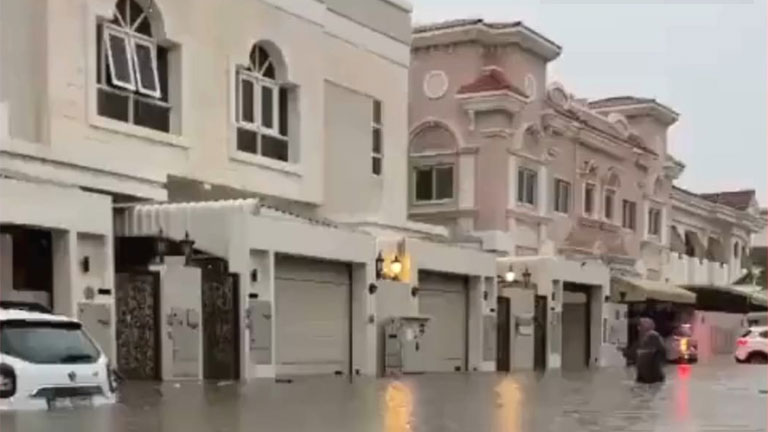
Purchasing a home that has experienced flooding offers a unique set of challenges and opportunities. Given the city’s location and climate, flooded properties are not uncommon.
These homes often come at a reduced price but demand thorough consideration to ensure a sound investment. This guide provides essential insights into navigating the market for flooded homes, emphasizing damage assessment, repair costs, and the vital role of local water damage restoration services.
Understanding the History and Extent of Flooding
Understanding a property’s flooding history is crucial. Investigate how frequently the property has flooded. In varied climates, repeated flooding might suggest future risks, affecting insurance and resale value.
Assess the level of water intrusion. Homes might experience anything from minor water seepage to significant inundation. The depth of water can seriously impact the extent of damage, particularly to essential systems like plumbing and electrical wiring.
Local flood maps and discussions with neighbors can offer valuable insights into these aspects.
It’s also essential to identify the flooding source. This could range from natural events like hurricanes to infrastructure issues such as poor drainage or plumbing failures. Each cause necessitates different preventive measures and can influence your decision to purchase.
Assessing Damage and Potential Repairs
When you have a clear understanding of a home’s flood history, proceed to assess the damage. Visible damage like stained walls is just the tip of the iceberg. Check for hidden issues like mold – a serious concern in humid climates.
The foundation should be inspected for cracks or structural weaknesses, as flooding can undermine the building’s integrity.
Given the location, electrical systems and appliances are particularly susceptible to water damage. Engage a professional inspector to evaluate these systems thoroughly. Their assessment will help estimate repair costs, which is important for budgeting and price negotiations.
Remember, in a city, flood damage can extend beyond the obvious. Issues like damaged insulation or compromised air quality are common and can incur significant future costs. A comprehensive inspection is critical to understanding the home’s true condition.
The Role of Flood Insurance
Securing flood insurance for a previously flooded home is a critical step. Unlike standard homeowners’ policies, flood insurance specifically covers flood-related damages – a necessity in a flood-prone area.
Research the local flood insurance market. In some neighborhoods, high insurance costs can offset the lower purchase price. Be aware of changing flood maps and regulations, which can impact future rates and requirements.
Consulting an insurance agent experienced in flood-damaged properties can be incredibly beneficial. They can guide you through the local insurance landscape, helping you understand your options and the potential coverage limitations.
Long-Term Considerations and Resale Value
Purchasing a flooded home requires a long-term perspective. Consider the impact on resale value; homes with a history of flooding, even in desirable areas, can be challenging to sell and might have a diminished resale value.
Factor in ongoing maintenance and preventive measures. In a city, this might include installing sump pumps, improving property drainage, or using flood-resistant building materials. These measures not only protect your home but also enhance its appeal to future buyers.
Stay updated on flood mitigation efforts and community resilience plans. These can significantly influence future flood risks and, consequently, your property’s value.
Navigating Legal and Regulatory Aspects
It is essential to understand the legal and regulatory framework surrounding flooded properties. Familiarize yourself with local disclosure laws. Sellers are generally required to disclose past flooding and related damages, but the specifics can vary.
Building codes and permits are another important consideration, especially for flood-damaged homes. Ensure that all repair work adheres to the latest standards, which can be stringent in flood-prone areas.
Environmental Considerations
Unique geographical location makes it susceptible to environmental factors such as rising sea levels and hurricanes, which can contribute to flooding. When considering a flooded home in this area, it’s important to evaluate the environmental risks associated with the property.
This involves understanding the local ecology, any changes in weather patterns, and how these factors might influence future flooding risks.
In addition to future risks, consider the environmental impact of past flooding events on the property. Has the flooding caused any long-term damage to the local ecosystem, such as soil erosion or contamination?
Understanding these impacts can help you gauge the extent of restoration needed to make the home environmentally safe and sustainable.
Hiring Local Water Damage Restoration Services
Post-purchase, restoration, and repair become paramount. This is where local expertise becomes invaluable. Opting for Clearwater Water Damage Restoration services would be the right thing to do.
Why? Because these local professionals specialize in restoring homes affected by water damage, a common issue in the area. They are equipped to handle everything from water extraction to mold remediation, which is crucial in humid environments.
Local services are acutely aware of the challenges posed by the city’s climate on drying times and mold proliferation. They can offer valuable advice on future water damage prevention, which is essential in a region prone to flooding.
Select a restoration service with a proven track record and positive customer reviews. Ensure they are licensed and insured, providing services specifically tailored to the needs of flood-damaged homes.
Conclusion
Buying a flooded home demands careful consideration and thorough research. Understanding the property’s flood history, assessing damage, securing appropriate insurance, hiring local water damage restoration services, and considering long-term implications are all crucial steps.




